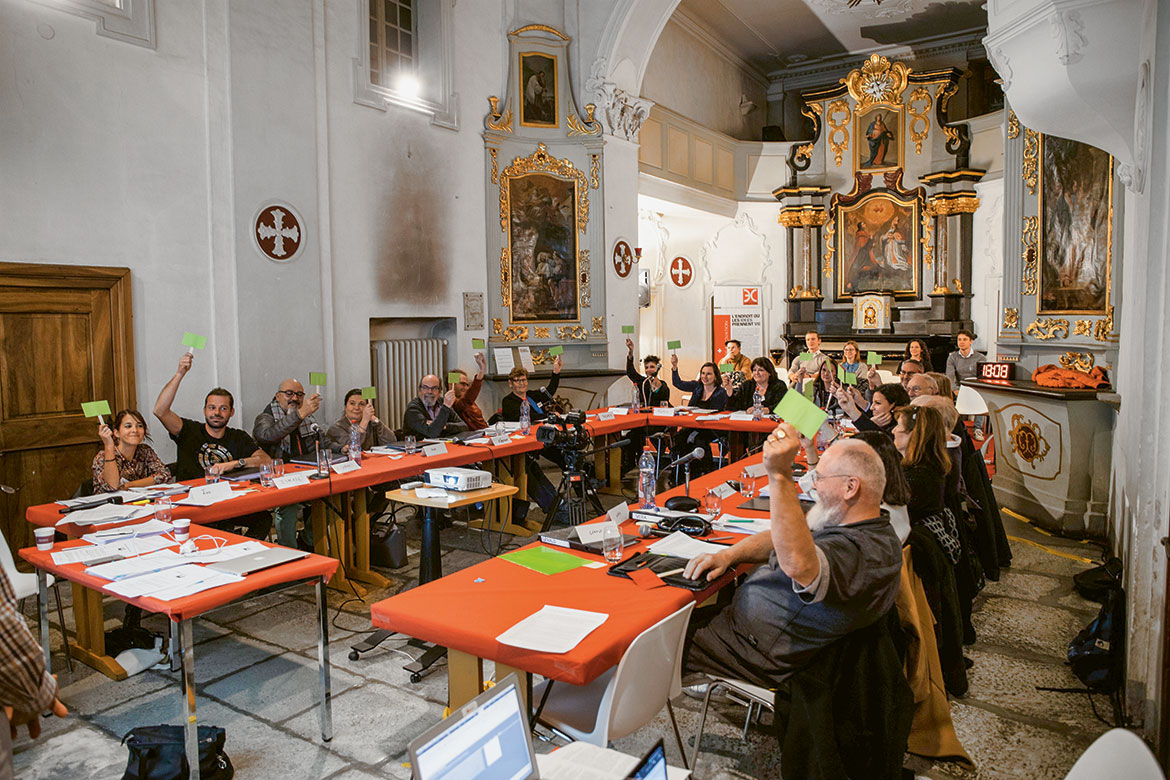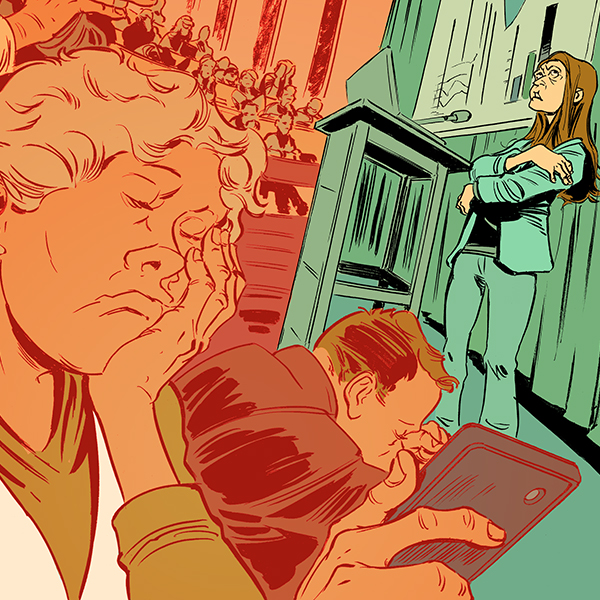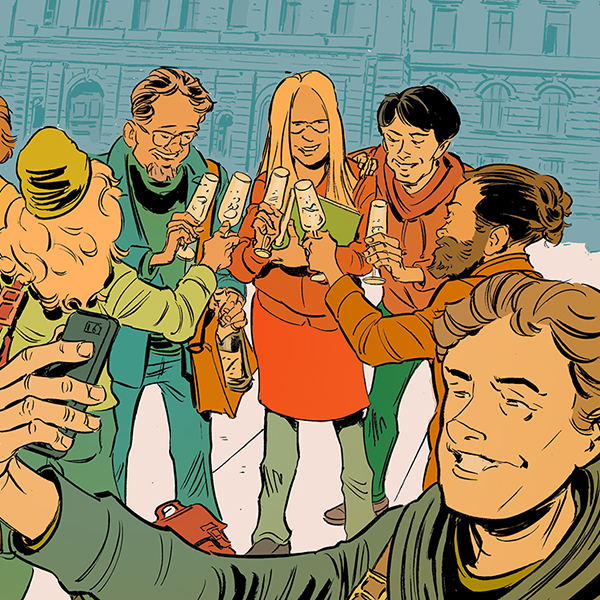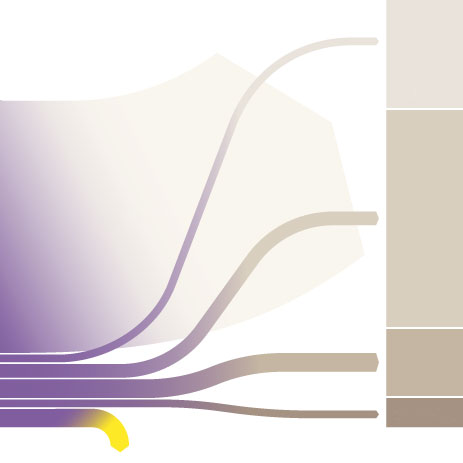VOTING BEHAVIOUR
The ideal debate is a lottery
Having travelled from the state of Oregon to the town of Sion, the idea of randomly drawn ‘citizen panels’ aims to revitalise direct democracy. Here’s some feedback on the Swiss Demoscan project.

Almost like in the federal parliament: a group of citizens from Sion is drafting a joint declaration on a referendum. The participants were chosen by drawing lots. | Image: Demoscan
The challenge was to improve the recipe for direct democracy using an ingredient called ‘citizen panel’, and the aim was to strengthen it against the risks of populism and abstention. The Demoscan pilot experiment was spearheaded by Nenad Stojanović, a political scientist at the University of Geneva, and carried out in November 2019 in the town of Sion in the canton of Valais. Twenty people from a statistically representative group of the Swiss population were drawn at random and brought together over two weekends. Their task was to analyse the arguments for and against the popular initiative ‘More affordable housing’ and to summarise them on two pages to be distributed in the town as a supplement to the official explanatory brochure ahead of the vote on 9 February 2020.
Although the experiment was widely publicised, its impact has so far been more limited. To evaluate it, Stojanović has conducted surveys among panellists and the town’s electorate. “At first, the panel members were sceptical about their ability to understand a subject that seemed complex to them. By the end of the process, after gathering opinions and expertise and then deliberating, everyone had achieved a high level of confidence in their ability to understand the issues and form an opinion”. When asked about the reaction of the people of Sion, he said, “the polls showed as high a level of confidence in the panel as they did in Parliament. In adopting a position, the population relied on the citizen report in second place, after the official brochure, before party platforms and the media”. Demoscan also seems to have had a small, positive effect on voter turnout.
Populism dissolved in the debate
The experiment is part of a research project that examines the link between direct democracy and populism. But what light does it shed on it? “The timing of the vote meant it focused on a question that was not the most representative, but in which opponents had nonetheless discerned elements of left-wing populism insofar as it suggested that a major problem could be resolved in a simple way; furthermore, it was organised under a heading that obliged people to agree with it”. Faced with this, the group changed along the way. From being rather indecisive at first, it moved towards ‘no’, predicting the voice of the Swiss population two months later (57 percent voted ‘no’) and suggesting that the forces that defused the populist arguments in the citizen-panel’s deliberations are also at work in the national debate.
Although critics today decry a fad, the interest in a political lottery in our societies dates back to antiquity. Coupling it with elements of direct democracy has been tried out over the last decade in Oregon (US), British Columbia (CA) and Ireland. The French political scientist Yves Sintomer, who has authored several books on innovative forms of participatory democracy, sees it not only as a trend, but also as a promising nexus. “The panel drawn at random, deliberating under almost ideal conditions, responds to the frequent criticism that direct democracy is the playground for rhetorical discourse and unsubstantiated positions”. In return, “‘citizen panels’, whose role has often been limited to giving advice to the authorities, find a citizen’s sanction through them being anchored in direct democracy”. However, one should be careful not to see them as a panacea, “thinking that this would be suffice to solve the crisis of representation in Western democracies”.
Looking beyond the experiments, Sintomer sees the challenge today as lying in a process of institutionalisation, “so that the use of this procedure does not depend on the will – good or bad – of the authorities in power”. In Switzerland, the next meetings to follow on from the experiment in Sion will take place in Geneva in November 2020, then in a German-speaking canton in the spring of 2022.




